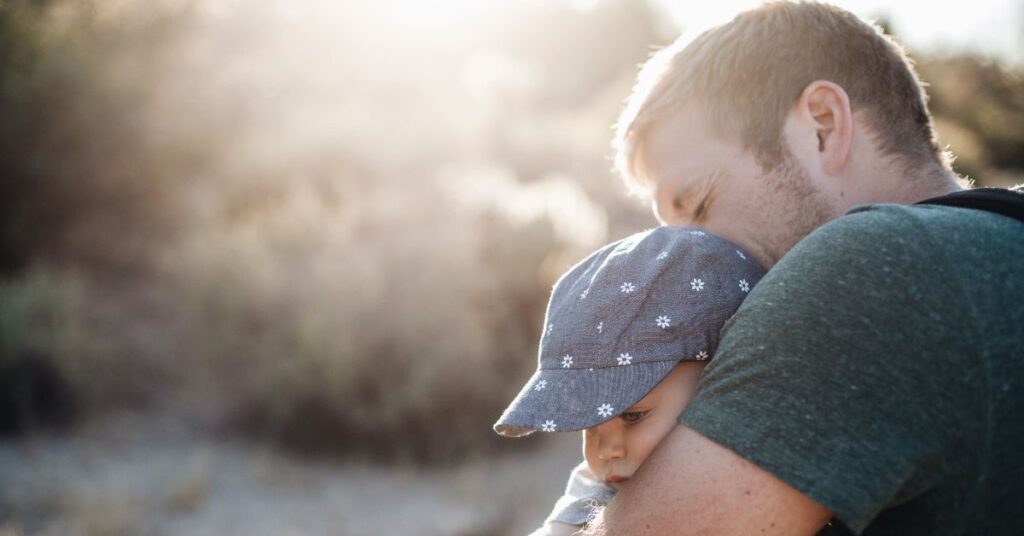The Top 6 Life Skills in Recovery [2023]
The Top 6 Life Skills in Recovery [2023]

Table of Contents
How do you develop life skills in recovery?
After all, life skills are essential for remaining sober. And in this article, we cover coping skills for addiction and what life skills you need to live a life free of addiction.
Want to learn more? Read on!
What are recovery life skills?
First things first, what are recovery skills, aka life skills?
Life skills are the competencies that help us navigate the demands of daily life. They are the building blocks for personal growth, self-reliance, and success in various areas, including recovery from addiction.
Think of them as superpowers that not only empower you to conquer challenges but also seize the opportunities that life throws your way.
Life skills in recovery encompass a wide range of practical, emotional, and cognitive abilities that help us to:
- Make confident and informed decisions
- Develop healthy routines
- Manage our emotions and stress levels
- Communicate effectively
- Set and achieve goals
- Cultivate and maintain healthy relationships
- Master time management
- Be on top of our finances
Recovery life skills go beyond simply collecting knowledge – they’re about unleashing the power of that knowledge in the real world.

Why are life skills important in recovery?
After decades of research into addiction, we now know that only focusing on abstinence is not enough. While sobriety is a vital aspect of recovery, it’s just as important to:
- Address the underlying factors that contributed to addiction
- Develop a robust set of recovery life skills
Life skills give us the tools to overcome obstacles and make positive choices that align with our deepest values and dreams.
In the context of recovery, they play a crucial role in supporting you to rebuild your life, develop an unshakeable resilience, and maintain long-term sobriety.
My personal story
Before becoming a certified recovery coach, I had my own battles to face with addiction.
My journey began at the age of twelve when I started abusing alcohol. At fourteen, a car accident left me with a traumatic brain injury, and I realized the gravity of my addiction. Because despite the risks, I only managed five months without alcohol.
After undergoing a massive jaw surgery at the age of eighteen, my addiction took an even worse turn. Introduced to narcotics for pain management, I quickly became addicted. Eventually, the prescription was halted, but my addiction continued.
Desperate to feed my cravings, I sought out my narcotic of choice: Cocaine.
And for many years to come, I fell deeper and deeper into addiction’s destructive grip, blind to the harm it was causing me.
The challenging road to recovery
Like many others, my road to recovery was far from smooth.
While I sometimes managed to abstain from substances, I soon realized that I lacked the necessary tools to navigate the ups and downs of everyday life.
Seemingly “simple” tasks such as managing my time, dealing with stress, and effectively communicating were too overwhelming. As a result, I found myself often slipping back into old patterns.
It became evident that my recovery hinged not only on abstaining from addictive substances but also on developing essential life skills.
The importance of recovery life skills
It was through this personal journey that I truly understood the transformative power of life skills training. I recognized that acquiring these skills was not just a means to improve my day-to-day existence – it was a fundamental aspect of my recovery process.
By investing time and effort into developing addiction recovery skills, I witnessed firsthand the positive impact they had on my overall well-being, self-confidence, and ability to sustain long-term sobriety.
Going beyond addressing addiction alone empowered me to rebuild my life holistically.
Here’s a bit more on my recovery story:
6 essential life skills for addiction recovery
So, what exactly are these life skills in recovery? Below, I share six of the most important ones.
1. Practicing self-care
Self-care involves prioritizing your physical, emotional, social, and mental well-being. Self-care plays a fundamental role in addiction recovery for several reasons.
- Firstly, it helps you cultivate a strong foundation of self-worth and self-compassion. Addiction often erodes self-esteem and self-care acts as a counterbalance, fostering a positive self-image and promoting self-acceptance.
- Secondly, self-care provides healthy coping mechanisms to manage stress, cravings, and triggers. Engaging in activities such as exercise, mindfulness, and relaxation techniques helps reduce anxiety and maintain emotional balance.
- Thirdly, it boosts your well-being. A clean living space, personal hygiene, adequate sleep, balanced nutrition, and regular exercise all contribute to increased energy levels, improved mood, and enhanced resilience in the face of cravings or setbacks.
- Finally, and perhaps most importantly, it involves a healthy amount of self-love. It essentially shows that you hold yourself in high regard – high enough to invest the necessary time and energy in nurturing your well-being.
2. Social skills, communication skills, and building healthy relationships
Addiction often isolates us. But healthy relationships are vital during recovery as they provide a valuable network of accountability, support, and encouragement.
Developing the right social and communication skills allows you to rebuild and establish connections that may have been damaged or lost during addiction. This can create a much-needed sense of belonging and understanding.
Communication skills refer to the ability to convey information, ideas, and emotions. This can be both verbal and nonverbal.
Some typical examples of communication skills are:
- Clear expression
- Assertiveness
- Adequate body language
Social skills, on the other hand, encompass a broader set of abilities used to navigate social situations.
Social skills are also called interpersonal skills, with the word interpersonal meaning ‘between people.’ Whereas communication skills primarily focus on conveying information and expressing oneself, social skills involve the dynamic interplay between individuals in social interactions.
They include both communication and attitude. Some examples are:
- Understanding and appropriately responding to social cues
- Displaying empathy
- Demonstrating good manners
- Cooperating with others
While effective communication helps you express your needs, manage conflicts, and establish boundaries, interpersonal skills are the key to fostering healthier and more fulfilling relationships.
3. Avoid triggering situations
Actively avoiding triggering situations is an important part of relapse prevention.
Being around people or places connected to substance use can stir up negative emotions and stress. These triggering situations can also quickly lure us back into old habits by reigniting cravings and temptations.
Avoiding what may trigger us is an act of self-care.
You create a safer space for your healing process. And you prioritize your well-being and honor your commitment to a healthier life.
4. Emotion and stress management
Addiction recovery is tough, and it’s made even harder by the stressors we face along the way. Furthermore, addiction itself often stems from struggling to handle our emotions and cope with stress.
That’s why better emotional regulation and stress management are so important.
When we can regulate our emotions, we gain the power to recognize, understand, and express them in healthier ways. Learning to ride the waves of our feelings also takes away the immense power our emotional triggers have over us.
Similarly, by finding healthier outlets for stress and developing coping skills for addiction, we avoid turning to destructive substances or behaviours to soothe ourselves.
5. Setting and achieving personal goals
Goals give us direction and motivation. They help us stay focused and give a sense of purpose.
By setting goals, you actively shape your future instead of letting addiction dictate the course.
Moreover, achieving goals, whether big or small, boosts your self-esteem and confidence. Each milestone reached reinforces your belief in yourself and your ability to succeed.
6. Start thinking big!
When you start thinking big, you break free from the limitations that addiction may have placed on you. You dare to believe in a life that’s not only free from substances but also filled with purpose, joy, and fulfillment.
Thinking big challenges the self-doubts and limiting beliefs that may have held you back. It pushes you to step out of your comfort zone and it fuels your resilience and determination. With your eyes on the bigger picture, you stay focused on your long-term goals and keep pushing forward.
No longer confined by self-imposed limitations, you discover what you’re truly capable of and unleash your full potential.
Overcoming obstacles to developing life skills
Developing recovery life skills is essential, but several obstacles can hinder our progress.
Some of these obstacles include:
- Lack of motivation or direction
- Fear of failure or criticism
- Limited resources (such as time, money, energy, access to opportunities)
- Negative self-talk or limiting beliefs
- Lack of support from others
To overcome these hurdles, numerous strategies can be employed, such as building motivation, seeking resources, and practicing self-care.
However, it all starts with changing your mindset. This involves:
- Identifying and challenging limiting beliefs
- Cultivating a growth mindset
- Focusing on progress over perfection
Let’s take a quick look at what each one entails.
Identify and challenge limiting beliefs
Identifying and challenging limiting beliefs is the first step in developing a growth mindset.
Limiting beliefs are negative thoughts or assumptions that hold you back from reaching your full potential. For example, if you believe that you’re not smart enough to learn a new skill, you’re less likely to try.
Here’s what you can do instead:
Challenge your negative belief by reframing it into a more positive statement, such as “I may not know how to do it yet, but I can learn.”
Or to give another example, instead of thinking “I’m a failure because I’ve relapsed,” you can reframe the thought as “Relapses are common in the recovery process. And I can use this experience to make necessary adjustments and move forward.”
A little dose of ‘reality testing’ is also a good idea. The goal here is to see things more as they really are, rather than through the lens of what we fear or hope.
Some reality-testing questions you may ask yourself are:
- What evidence do I have that challenges my negative beliefs about my ability to recover from addiction?
- Are there success stories from others who have overcome similar problems that can provide a more balanced perspective?
- Can I spot any distorted or irrational thinking patterns that might influence my beliefs about my addiction?

Cultivate a growth mindset
A growth mindset is the belief that your skills and abilities aren’t set in stone. They are ever-changing.
But for this, we must sometimes dare to venture into the unknown and unfamiliar.
Cultivating a growth mindset involves embracing challenges, learning from mistakes, and seeking feedback.
This helps you overcome the fear of failure and criticism because you know that “failure” is not a mere setback.
It’s an opportunity to learn and grow – and an essential step towards success.
Here’s what you can do instead:
Always remind yourself that you’re an ever-evolving human being.
How you are today, does not need to predict how you will be tomorrow. Sure, we always carry ourselves wherever we go. But that doesn’t mean we must remain stagnant.
Set out to learn and grow from your mistakes.
For example, instead of beating yourself up over something that went wrong, try to ask yourself this question:
“What could I instead learn from this, to help me do things better next time?”
Or:
“What lessons can I take from this, to make sure that I will feel differently in the future?”
Focus on progress over perfection
Perfectionism paralyzes. It often forms a hindrance to personal growth, and it can make it very difficult to move forward toward our goals.
Having high standards is nothing to be ashamed of. But more often than not, perfectionism leads to unrealistic expectations and crippling self-doubt.
Here’s what you can do instead:
Focus on making progress, no matter how slow or small it may seem. Celebrate each step you take toward your goals, recognizing that each one is a victory in itself.
Likewise, instead of fixating on the distance you have yet to cover, take moments to appreciate and reflect on how far you’ve already come.
For more on what to expect when you get sober, take a look at this video I put together for you:
Conclusion
By developing and honing our life skills in recovery, we unlock a world of possibilities.
We regain our sense of control, enhance our well-being, and build a sturdy foundation for a sober life of purpose, fulfillment, and joy.
Thanks to my own experiences regarding how to cope with drug addiction, I wholeheartedly stand behind the importance of life skills training in recovery.
I look forward to helping you work towards acquiring and applying these skills and empowering you to navigate the challenges of recovery so that you can embrace the new life that lies ahead.
Are you ready to cultivate the life skills you need to live life on your own terms? Then book your FREE 60-minute exploratory call to learn more!
Learn more:
How much does a recovery coach cost?
About the author
- Rose Chant is a certified addiction recovery coach with years of experience as a mental health worker. Rose started her recovery coaching journey after overcoming her addiction in 2015. She lives in Nanaimo, Vancouver Island, Canada, with her family.
Latest entries
 Recovery CoachingNovember 20, 2023Mastering Relapse: Strategies for Understanding and How to Prevent
Recovery CoachingNovember 20, 2023Mastering Relapse: Strategies for Understanding and How to Prevent Addiction RecoveryJune 1, 2023The Top 6 Life Skills in Recovery [2023]
Addiction RecoveryJune 1, 2023The Top 6 Life Skills in Recovery [2023] Addiction RecoveryMay 5, 202322 Steps to Get Clean and Sober Fast and Make It Last [2023]
Addiction RecoveryMay 5, 202322 Steps to Get Clean and Sober Fast and Make It Last [2023] Recovery CoachingApril 6, 2023How Much Does a Sober Coach Cost? [2023 Guide]
Recovery CoachingApril 6, 2023How Much Does a Sober Coach Cost? [2023 Guide]

